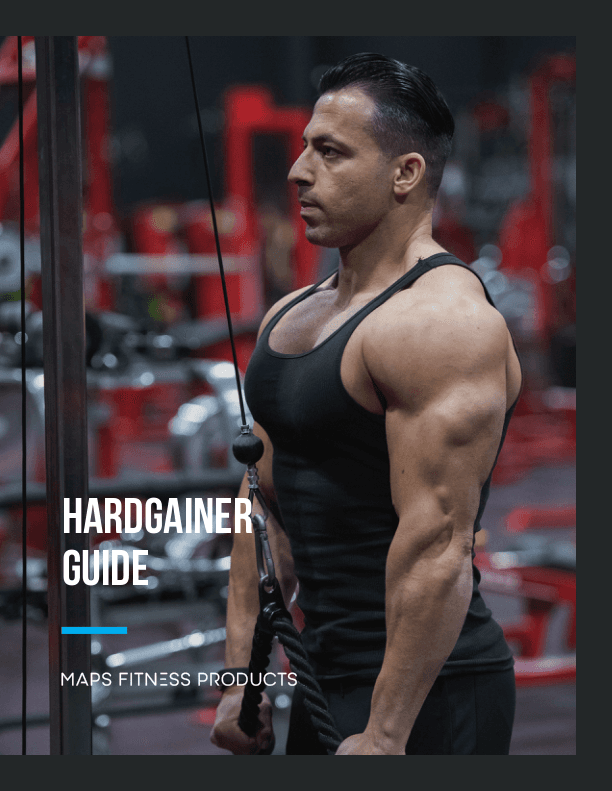
How to pack on muscle if you have been skinny your whole life
diet
In order to gain weight, you simply MUST eat more calories than you burn.
What is almost NEVER communicated to people is how a person’s metabolism tends to “speed up” when they eat more food.
In my experience a true hardgainer needs to consume about 1000 more calories than they burn in order to see some weight gain.
Macronutrients are proteins, fats and carbohydrates. The amounts you consume of each will determine whether or not the weight you gain is muscle or fat and they will determine how you FEEL and how you perform in the gym.
Eating TOO MUCH protein will hinder your muscle gains by making it VERY difficult to eat enough calories. This is because protein is satiating and isn’t very palatable.
It’s not that eating more protein than 1 gram per pound of bodyweight is bad for you (although in insane amounts it might be), it’s that study after study has shown that there are NO ADDITIONAL benefits from more protein than that. I
When consumed, carbs are the preferred source of energy for the body when it comes to athletic endeavors. Studies are pretty clear on this. When compared head to head, a low carb diet usually results in less strength, power and endurance.
When it comes to building muscle, you NEED to be able to lift heavy and hard, so make sure to NOT go on a low carb diet.
try to get at least 30-40% of your calories from carbs.
Good sources of carbs include: • White Rice • Potato • Quinoa • Buckwheat • Fruit • Corn • Oatmeal • Starchy Veggies.
Fats can also contrib- ute to muscle building. The old timer bodybuilders of the 1950’s to the 1970’s knew this and would routinely consume high amounts of fats, especially animal fats for muscle gain. In fact, saturated fats from well sourced meats seems to have muscle building effects in most people
Dietary cholesterol (a type of fat) has been shown to positively influence strength and muscle growth in some studies. Other studies show that consuming a whole egg with all of its cholesterol is far more effective at producing a muscle building environment than consuming an equal amount of protein without the cholesterol.
make fat account for about 15-30% of your calories.
Good sources of fat: • Grass Fed Beef • Lamb • Pork • Chicken • Full Fat Organic Dairy • Eggs • Fatty Fish • Olive Oil • Avocado • Nuts • Coconut • Seeds
Try to avoid heavily processed vegetable fats like canola oil or safflower oil and they can promote an unhealthy inflammatory response.
Training
When you lift weights with sufficient and appropriate intensity, you are stressing your body. You literally damage your body to a small extent and your body tries to adapt to this stress so that a similar event in the future will not cause any damage.
It’s an ADAPTATION RESPONSE. Understand this fact and you will view and apply training in much more effective ways.
For muscle growth it’s important that you focus on getting STRONGER. Hardgainers typically respond very well to programs that aim to increase strength rather than those that focus on the pump. Strength based workouts use straight sets with long rest periods in between (1-3 minutes) and lower rep ranges (6-8 reps).
If you consistently get stronger and you are eating an adequate amount of calories you WILL build muscle.
Machines and cables have their place but they simply aren’t as effective for building MASS like barbells and dumbbells.
Train your whole body frequently rather than hammering a body part once a week. The hardgainer needs more frequent stimulation than the average lifter, so rather than splitting up the body into body parts. And training one or two of them a day, train the whole body three days a week.
sleep
Study after study shows that lack of sleep contributes to a hormone profile which makes building muscle all but impossible with growth hormone and testosterone being depressed, and muscle burning stress hormones like cortisol being elevated. I
Some studies show an up to 90% drop in the beneficial
sleep hormone melatonin when subjects were exposed to electronic light right before bed. You want GOOD levels of melatonin. Low melatonin means lower growth hormone and higher melatonin means more growth hormone which means a BETTER muscle building environment.
My recommendation is to wear blue blockers for at least 2-3 hours before bed to maximize sleep quality.
Most supplements simply don’t do much when it comes to building muscle. If protein intake from food is adequate then taking a protein powder won’t help you at all.
That being said, one supplement alone has been PROVEN to build more muscle in most people. Creatine is safe and will give you pretty clear strength gains within the first 2 weeks of taking it.